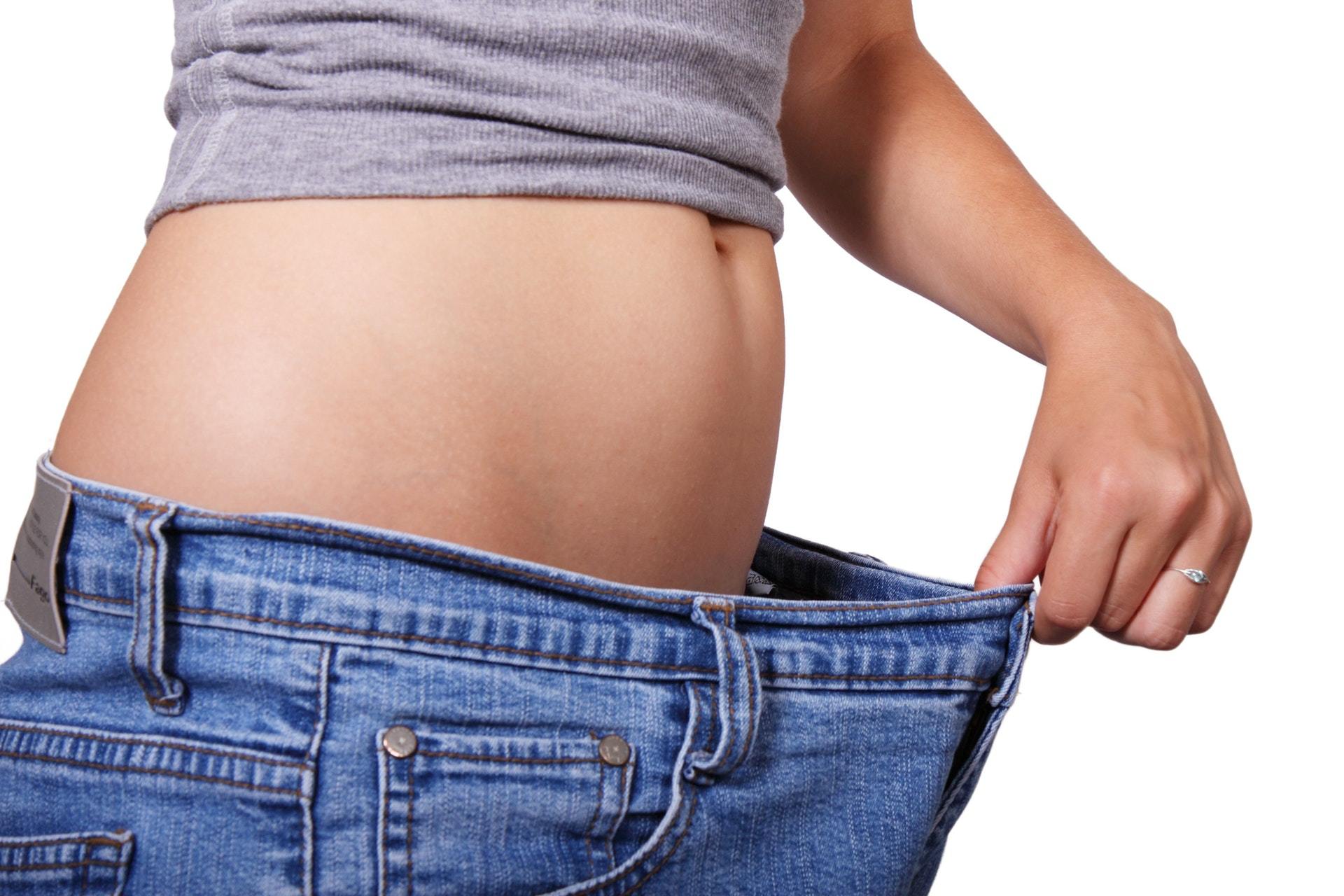This post may contain affiliate links at no additional cost to you. As an Amazon Associate I earn from qualifying purchases. Click to view our full disclosure.
What's inside
You’ve been counting your macros, exercising regularly, and avoiding those ooey gooey donuts in the breakroom for weeks.
But for some reason, the number on the scale has completely stalled out and refuses to budge.
Then, one fateful morning, you step on the scale… and you lost 5 pounds overnight! You give yourself a pat on the back – wow, your hard work is paying off!
But wait, what’s really happening here? Did you really lose all that fat overnight? Or is your scale broken? What kind of voodoo magic is this?!
If you poke around the internet looking for answers, you’ll come across The Whoosh Effect (also referred to as the keto whoosh effect or intermittent fasting whoosh effect). Sounds fancy, right?
This buzz-word term is used by many to describe a sudden drop in weight, and they’d have you believe that this is a whooshing of fat right out of your body.
But is this explanation of a weight loss whoosh a myth?
The Whoosh Effect
Sorry to burst the bubble of novice health bloggers out there, but the whoosh effect isn’t a real thing – at least not in the way that many like to describe it.
According to faulty information on blogs all across the internet, the whoosh effect describes how fat cells lose the fat inside, fill with water, and then eventually flush themselves and collapse.
Unfortunately, this is drastically over-simplified and just doesn’t have any scientific backing.
Thinking that you can “whoosh” away fat cells is a very inaccurate way of looking at weight loss.
Fat cells don’t simply convert over to water and then flush out of your system when you go to the bathroom.
Here at Exercise with Style, we’re all about the science. We want to give you legit facts – not “woo woo” health blog bologna. So, what does the science say?
A sudden change in weight when dieting is likely caused by a change in the water balance in the body – not a sudden change (gain or loss) in actual fat.
In other words, water retention is likely the culprit in this “whoosh” phenomenon. So, instead of discussing the myth of the whoosh effect, let’s look at water retention and the water weight associated with it.
What is Water Weight?

First of all, our bodies are mostly made up of water. In fact, water makes up about 50 to 60 percent of a person’s body weight.
Any water over that amount is typically what we refer to as “water weight.” That excess water builds up in the body, making it bloated and puffy, particularly in the midsection. And this water retention is known as edema.
Water levels can actually fluctuate by as much as 2 to 4 pounds in just one day!
So, if you feel bloated and, well, squishy, you’re experiencing a totally normal phenomenon.
But what exactly is happening in your body that’s making you retain so much excess water?
Common Causes of Water Retention
Your body wants to maintain a state of homeostasis, so any big changes will throw it off balance. When you decide to get healthy, you’re throwing a lot of changes at your body, such as new eating habits and an increase in exercise.
These can lead to water retention as your body tries to balance things out.
These are just two common sources of water retention – in fact, there’s an almost endless number of reasons your body may decide to retain water.
Let’s look at a few of the most common causes:
High Levels of Cortisol Production
Ah, cortisol. We hear about this pesky stress hormone all the time when it comes to our health.
If your body is under a lot of stress, it amps up cortisol production, and more cortisol means more bloat from water retention.
And this doesn’t just mean stress from a tough deadline at work – physical stress from exercise can be a problem as well.
If you’re dieting hardcore and working out to the extreme (aka overtraining), your body feels stressed out and produces more cortisol.
Salty Foods
Remember the sodium and potassium balance you learned about in high school? Yeah, me neither.
But salty foods (packed with sodium) have a big impact on how much water you carry around in your body.
Sodium is a mineral that carries water to the cells, and as our foods become saltier and saltier, that sodium intake leads to more water being stored in your cells.
Potassium has the opposite effect, but most foods we love to eat are relatively low in potassium.
This means our balance is all out of whack – and we bloat!
Carbohydrates
Carbs get a bad rap for a lot of reasons – some true and some false. But unfortunately, eating too many refined carbs can cause your body to hold onto water.
Why are carbs always the culprit?
Here’s the science behind how carbs make you bloat in two different ways.
First, refined carbs (such as table sugar and white flour) cause spikes in your blood sugar and insulin levels.
This makes your kidneys reabsorb more sodium – and as you now know, sodium makes you retain water.
The second part of this is related to glycogen. Any energy from carbs that isn’t immediately used up is stored away as glycogen – and glycogen comes with water attached to it.
So, if you have big stores of glycogen, you also have big stores of excess water.
Sedentary Lifestyle
Do you work a desk job?
This can disrupt the normal flow of fluids throughout your body, leading to a buildup of fluids, especially in your arms and legs.
If you’ve ever been on a long-haul flight, then you know how periods of long physical inactivity can make your feet and ankles extremely puffy.
Menstrual Cycle
Cortisol isn’t the only hormone that can disrupt our bodies. Female hormones can also cause bloat just before a woman’s time of the month.
Other Causes
Certain medications, such as anti-inflammatories, can cause you to retain water. More serious medical conditions, like heart or kidney disease, can also result in swelling and excess water weight.
Simple Ways to Reduce Water Retention

Ok, now you understand what causes bloat. But how do you get rid of it?
Again, if you’ve searched online, you’ve probably read about how to trigger the whoosh effect. And again, the whoosh effect isn’t a thing!
But there are ways to help your body get rid of all that extra water.
Exercise Regularly
In the short-term, exercise is a great way to almost immediately reduce water weight.
Exercise stimulates blood flow and improves the circulation of all fluids in your body.
Plus, intense exercise makes you sweat, helping you maintain a natural balance of body fluids.
And exercise also burns through glycogen energy stores and the water attached to those glycogen molecules.
Cut Out Processed Foods
Processed foods are one of the biggest sources of sodium in our diets today, and as you now know, sodium causes water retention.
Keep an eye on the amount of sodium in your food and aim for less than 2,300 milligrams of sodium per day.
Processed foods are also typically chockful of refined carbs, which also lead to bloat.
Eat More Potassium-Rich Foods
[thrive_leads id=’1245′]
Potassium helps decrease the sodium levels in your body. So, try to include potassium-rich foods in your diet, such as bananas or avocados.
You can find more foods that pack in the potassium in this article. Plus, potassium also makes you go to the bathroom more frequently – so goodbye bloat!
Try Other Supplements
There are other supplements you can take that help with water retention. For example, magnesium is a key mineral that helps control your body’s water balance.
Magnesium-rich foods include nuts and whole grains, as well as dark chocolate (yes, please!).
Vitamin B6 and dandelion are widely recommended for getting rid of pesky puffiness.
In fact, dandelion supplements are popular within the bodybuilding world for dropping water weight to meet a weight class restriction.
Indulge In An Occasional Cheat Meal
Eating a big meal makes you happy and reduces cortisol. And less cortisol means less water retention.
However, this tip can bite you in the butt – if you indulge in too many cheat meals, you’ll offset your weight loss progress.
And remember that an overload of carbs can also cause a temporary bloat.
So, the key is to keep in mind the word “occasional” – don’t overdo it!
Schedule Rest Days
If you’re going too hard in the gym, your body is stressed to the max and your cortisol levels sky rocket.
Make sure to include a few rest days each week to avoid overtraining and let your body’s stress levels balance out.
Also, after finishing a particularly grueling workout, your muscles may become inflamed and retain fluid as they rebuild and repair. So, take your rest seriously.
Stay Hydrated
This may sound counter-intuitive, but drinking more water actually helps get rid of extra water weight.
One reason for this is that it flushes away the sodium in your body from those salty meals.
If you’re active and exercising regularly, then try to drink about a gallon of water a day to keep your body properly hydrated and flush out that puffy feeling.
Make Time For Relaxation
More relaxation is something we can all get on board with!
Reduce stress in any way you can – meditate, go for a walk outside, have a fun night out with friends, or binge watch your favorite show on Netflix.
The less stress you have in your life, the less water your body holds on to.
Final Thoughts
So, what’s our final verdict? The whoosh effect for weight loss is definitely a myth. Unfortunately, whooshing out fat cells just isn’t how the body works.
But if you’re stalling out on your weight loss journey, here’s the good news: Weight loss plateaus are completely normal.
Sure, they’re still frustrating, but everyone experiences a plateau during their dieting journey. You are not alone.
If you’re staying strict with your diet and exercise, then the likely culprit isn’t a “whoosh plateau” – you’re probably just retaining water.
Follow the simple tips in this article, so you can kiss that bloat goodbye and get back on track with your weight loss goals.
